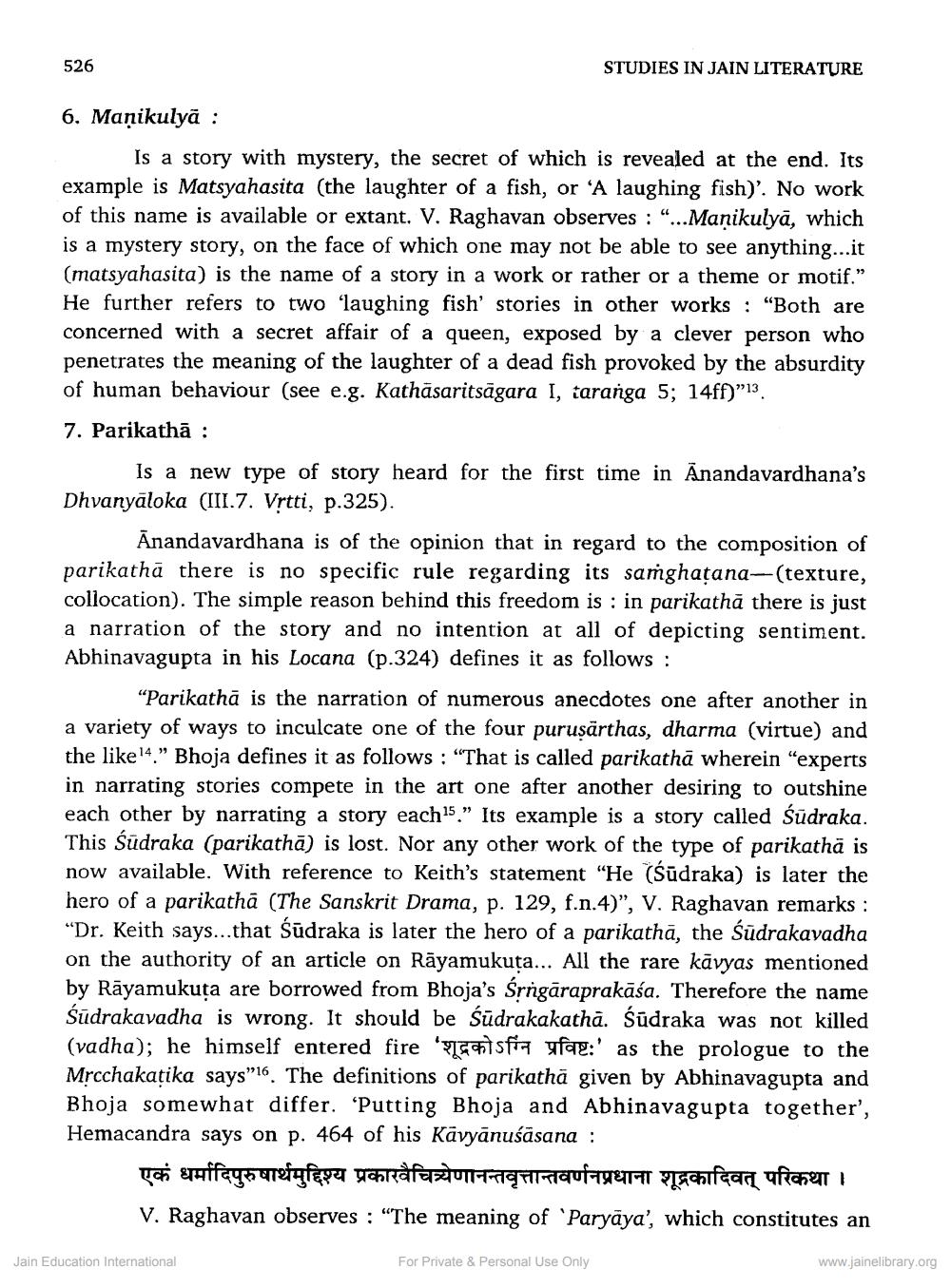________________ 526 STUDIES IN JAIN LITERATURE 6. Manikulya : Is a story with mystery, the secret of which is revealed at the end. Its example is Matsyahasita (the laughter of a fish, or 'A laughing fish)'. No work of this name is available or extant. V. Raghavan observes : "...Manikulya, which is a mystery story, on the face of which one may not be able to see anything...it (matsyahasita) is the name of a story in a work or rather or a theme or motif." He further refers to two laughing fish' stories in other works : "Both are concerned with a secret affair of a queen, exposed by a clever person who penetrates the meaning of the laughter of a dead fish provoked by the absurdity of human behaviour (see e.g. Kathasaritsagara I, taranga 5; 14ff)"13 7. Parikatha : Is a new type of story heard for the first time in Anandavardhana's Dhvanyaloka (III.7. Vrtti, p.325). Anandavardhana is of the opinion that in regard to the composition of parikatha there is no specific rule regarding its samghatana-(texture, collocation). The simple reason behind this freedom is : in parikatha there is just a narration of the story and no intention at all of depicting sentiment. Abhinavagupta in his Locana (p.324) defines it as follows : "Parikatha is the narration of numerous anecdotes one after another in a variety of ways to inculcate one of the four purusarthas, dharma (virtue) and the like14." Bhoja defines it as follows : "That is called parikatha wherein "experts in narrating stories compete in the art one after another desiring to outshine each other by narrating a story each 15." Its example is a story called Sudraka. This Sudraka (parikatha) is lost. Nor any other work of the type of parikatha is now available. With reference to Keith's statement "He (Sudraka) is later the hero of a parikatha (The Sanskrit Drama, p. 129, f.n.4)", V. Raghavan remarks : "Dr. Keith says...that Sudraka is later the hero of a parikatha, the Sudrakavadha on the authority of an article on Rayamukuta... All the rare kavyas mentioned by Rayamukuta are borrowed from Bhoja's srngaraprakasa. Therefore the name Sudrakavadha is wrong. It should be Sudrakakatha. Sudraka was not killed (vadha); he himself entered fire '18 fra gfag:' as the prologue to the Mrcchakatika says"16. The definitions of parikatha given by Abhinavagupta and Bhoja somewhat differ. 'Putting Bhoja and Abhinavagupta together, Hemacandra says on p. 464 of his Kavyanusasana : एक धर्मादिपुरुषार्थमुद्दिश्य प्रकारवैचित्र्येणानन्तवृत्तान्तवर्णनप्रधाना शूद्रकादिवत् परिकथा / V. Raghavan observes : "The meaning of 'Paryaya', which constitutes an Jain Education International For Private & Personal Use Only www.jainelibrary.org




